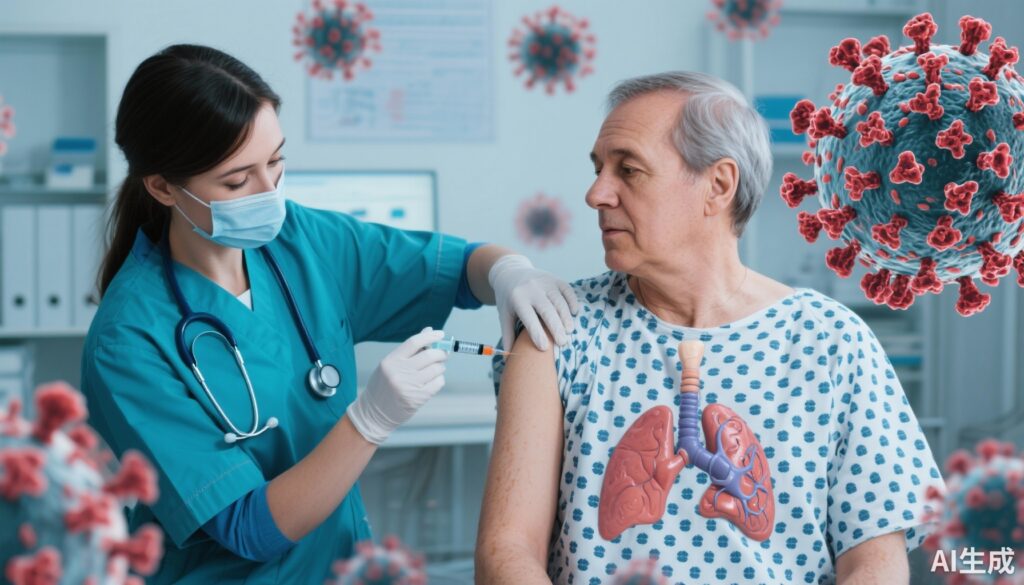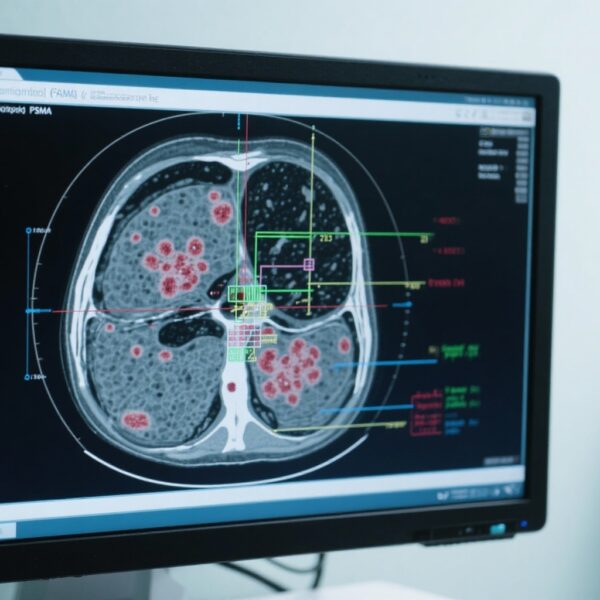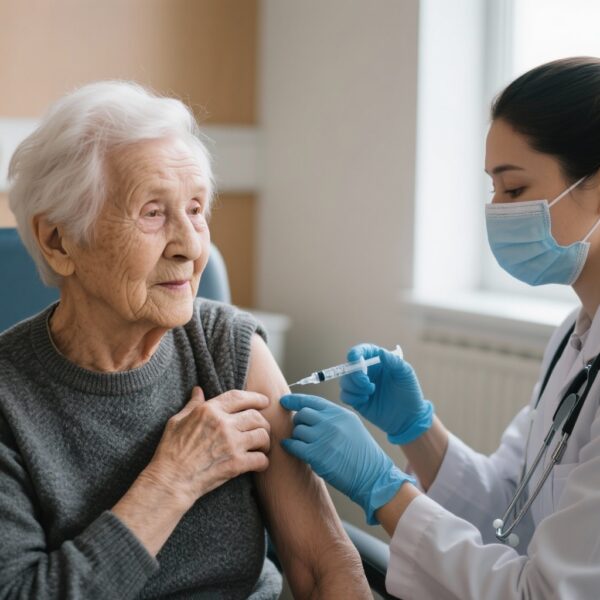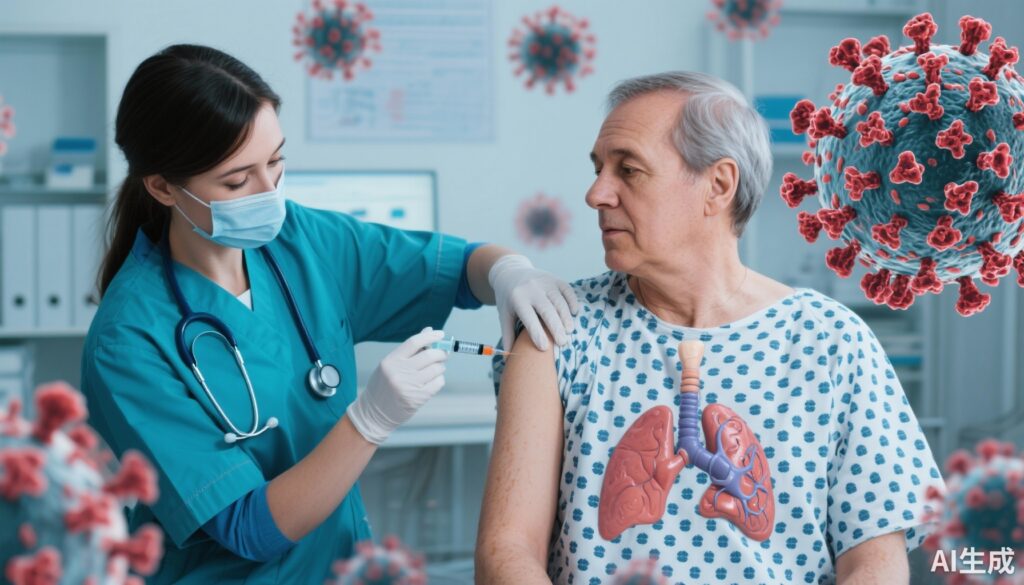Study Background and Disease Burden
Respiratory syncytial virus (RSV) remains a significant cause of severe respiratory illness, particularly in the immunocompromised population. Among these, allogeneic hematopoietic cell transplant (alloHCT) and lung transplant (LT) recipients bear the highest burden of morbidity and mortality associated with RSV infection. Viral clearance and immune defense are compromised due to immunosuppressive therapy and altered immune reconstitution in these patients, leading to increased susceptibility compared to other immunocompromised groups. Despite the urgent need, these high-risk populations have been routinely excluded from pivotal clinical trials investigating RSV vaccines, leaving clinicians with limited direct evidence of efficacy and safety for this subset. The advent of adjuvanted vaccines, such as the RSVPreF3 formulation designed to elicit both humoral and cellular immunity, offers promise for protection but requires rigorous evaluation in transplant recipients to define safety profiles and immunogenic potential.
Study Design
This interventional cohort study enrolled adult alloHCT recipients at least six months post-transplant and LT recipients at least three months post-transplant, acknowledging the differential immune reconstitution timelines. A total of 86 participants (46 alloHCT and 40 LT) received a single dose of the adjuvanted RSVPreF3 vaccine. Immunogenicity was assessed by measuring neutralizing antibody (NAb) titers, anti-RSVPreF-IgG levels, and RSV-specific polyfunctional T-cell responses at baseline and again four to six weeks post-vaccination. Safety monitoring included participant-led diaries capturing solicited adverse events, alongside clinical follow-up over a median duration of approximately six months (191 days, IQR 170-248).
Key Findings
Both alloHCT and LT recipients showed significant immunogenic responses to the RSVPreF3 vaccine. NAb titers increased significantly post-immunization (alloHCT median 1.3-fold, LT median 3.0-fold; p<0.0001), though seroconversion rates were modest—33.3% in alloHCT and 48.7% in LT recipients. IgG binding antibody levels rose substantially (3.3-fold in LT, 2.3-fold in alloHCT), reinforcing evidence of humoral immune activation (p=0.0018 and p=0.0015, respectively).
Robust polyfunctional CD4+ T-cell responses were noted in a majority of participants—71.4% in alloHCT and 80.0% in LT groups—indicating strong helper T-cell engagement critical for sustained immunity. CD8+ T-cell responses were less pronounced overall but significantly elevated post-vaccination in the LT cohort (p=0.024), highlighting potential cytotoxic T-cell activation in this subgroup.
Safety outcomes revealed the vaccine to be well tolerated. The most common adverse event was grade 1 injection site pain, reported by 62.8% of participants. Importantly, there were no withdrawals attributed to adverse events, and no serious vaccine-related adverse events occurred. Three LT recipients contracted RSV infection post-vaccination, with two requiring hospitalization, illustrating residual vulnerability in this population.
Expert Commentary
This study importantly addresses a critical data gap by focusing on populations typically excluded from RSV vaccine trials. The elicitation of robust CD4+ T-cell responses despite modest seroconversion suggests the vaccine’s adjuvant may be particularly effective in enhancing cellular immunity essential for viral control in immunocompromised hosts. However, the modest neutralizing antibody titers and limited CD8+ T-cell responses underscore the need for optimization, possibly through booster doses or combination vaccine strategies.
Limitations include the absence of a control or comparator group and a single-dose regimen, which restricts interpretation regarding the magnitude and durability of protection. Additionally, the relatively small sample size limits subgroup analyses and generalizability. Nonetheless, these results align with emerging data supporting the safety of adjuvanted RSV vaccines in vulnerable populations and provide a foundation for further research into tailoring vaccine strategies for transplant recipients.
Conclusion
The adjuvanted RSVPreF3 vaccine demonstrates a favorable safety profile and induces meaningful immunogenicity in alloHCT and LT recipients, characterized by modest seroconversion and strong CD4+ T-cell responses. These findings advocate for the inclusion of high-risk transplant recipients in RSV vaccination programs. Future studies should focus on enhancing neutralizing antibody responses and CD8+ T-cell immunity to optimize protective efficacy. This study contributes critical clinical data toward improving RSV prevention strategies in highly susceptible immunocompromised patients.
References
Hall VG, Alexander AA, Mavandadnejad F, Kern-Smith M, Dang X, Kang R, Humar S, Winichakoon P, Johnstone R, Aversa M, Novitzky-Basso I, Lavoie PM, Kumar D, Mattsson J, Ferreira VH. Safety and immunogenicity of adjuvanted respiratory syncytial virus vaccine in high-risk transplant recipients: An Interventional Cohort Study. Clin Microbiol Infect. 2025 Sep 26:S1198-743X(25)00463-X. doi: 10.1016/j.cmi.2025.09.013. Epub ahead of print. PMID: 41016596.



